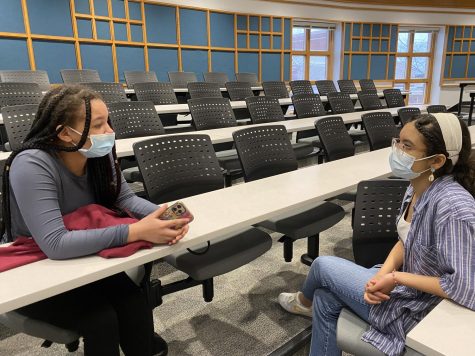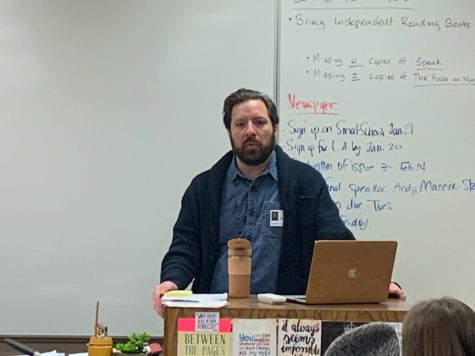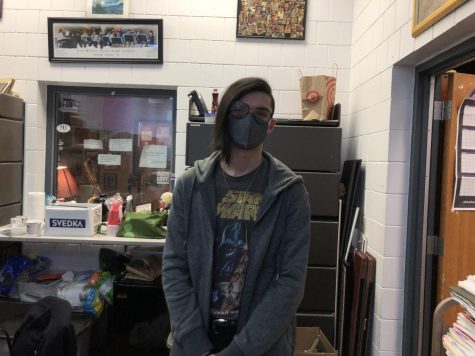Need for internet safety at a maximum
As the members of a new generation of societ, the people alive today get to witness something truly incredible. They get to see the advanced technology of phones, computers and other “smart” devices becoming an everyday part of society. However, with the new generation of tech comes a drawback that many have not stopped to consider: their safety online.
Ever since thethe widespread use of the internet, it has faced the problem of some using it as an outlet for violence, deception and hate. For example, the website Internet Safety 101 reports that 95 percent of all teens who use social media have seen some form of hate online, and 84 percent of all teens reported seeing others defend the aggressor’s actions. Based on this and other information, it is inherently obvious that the issue is entirely real.
“Safety is important today because people store and access so much of their personal information online,” Mike Teachout, technology and innovation coach said, “including, but not limited to, schoolwork, financial information, and important healthcare information.” Teachout’s comment reflects the state that the internet has reached in a need for safer behavior and policies.
The increased need for safety online also applies to the security people have for various accounts for websites and organizations. Many people online have weak passwords for accounts, or reuse their passwords. In fact, according to Entrepreneur.com, 73 percent of all users online record having used the same password for multiple accounts. The issue here lies in what experts refer to as “the domino effect”, where a singular hacker can enter multiple accounts a person controls based solely off of the fact that they used one password. Discovering one means that all have been compromised.
“With internet becoming so widely used today, it is important to make sure you take the right precautions while you are online,” senior Patrick Balfanz said. “Being knowledgeable and mindful about what you do and post on social media can help protect you from hackers, spammers, and other questionable people online,” Balfanz added.
Being knowledgeable and mindful about what you do and post on social media can help protect you from hackers, spammers, and other questionable people online.
— Patrick Balfanz
“Create secure passwords and do not reveal your identity to others unless they friends in real life too,” junior Gabe Holzmer said.
However, with safety being so relevant, it brings a another good question into play; How did it even become an issue in the first place? The answer to this question is simple, actually. The internet happened. Statistics show that, as the internet has grown, it has attracted more and more users, and a natural byproduct of this, people have begun to think of ways to profit off of and exploit other users online.
While many users think that their actions only affect personal computers and useless accounts, this is far from the truth.
“One of the problems that we see at the high school is that students will log into their Google account in the media center or one of the classroom devices . When they are finished printing or using the device in class, they just leave the computer with their school account open.” Teachout said. “The next user of the computer could read or send e-mail from their account, delete files and emails or change the password.”
Hopefully in the future all students, and all citizens in general, can take better measures to stay safe when using the internet. After all the internet is here to stay, as are its problems.
“As people use the internet more and more,” Balfanz said, “It becomes increasingly dangerous for people online.”
With the right precautions, though, people will have no trouble living in this world, despite the danger. After all, the answer to these problems is quite simple.
“Be aware of information you are accessing or sharing,” Teachout said, “Use strong passwords which include symbols and numbers and do not share your passwords with other people.”

Adam Sutcliffe is a senior at SAHS. He is heavily involved in the drama club and enjoys performing in the shows. His other interests include creative writing,...

















Lucas Braun • Feb 16, 2016 at 12:11 pm
This article does a great job showing that the internet can be a dangerous place if you aren’t careful with it. People are becoming careless with passwords and leaving accounts logged in which can lead to problems. No one wants other people using their computer accounts because it evades their privacy. One thing I would say is make the video a hyperlink or just put the video on the page and also make sure it isn’t restricted on the school wifi (this one was).